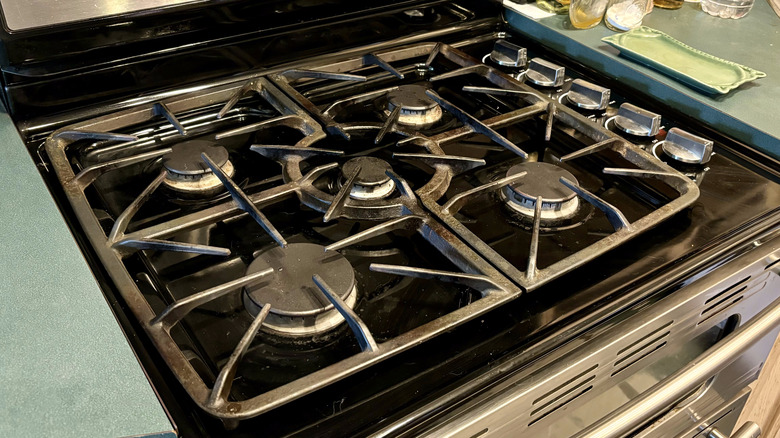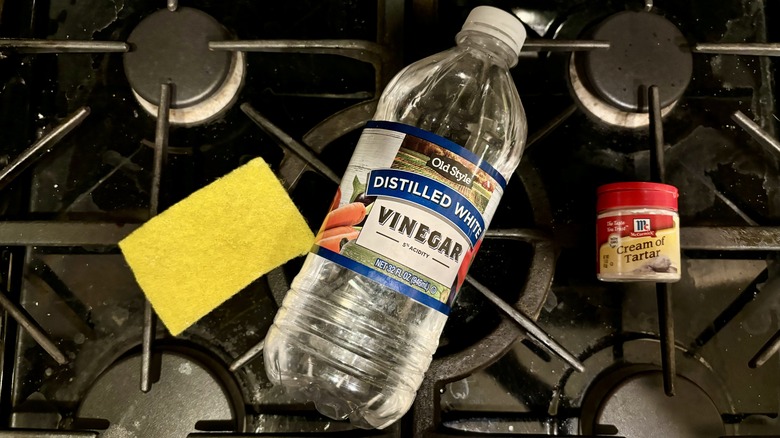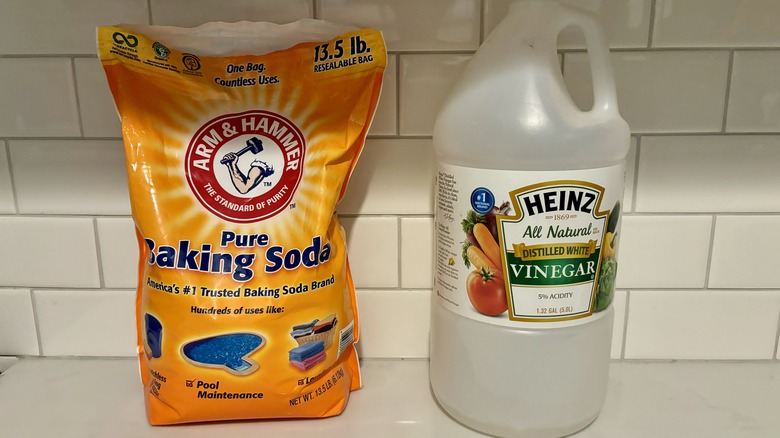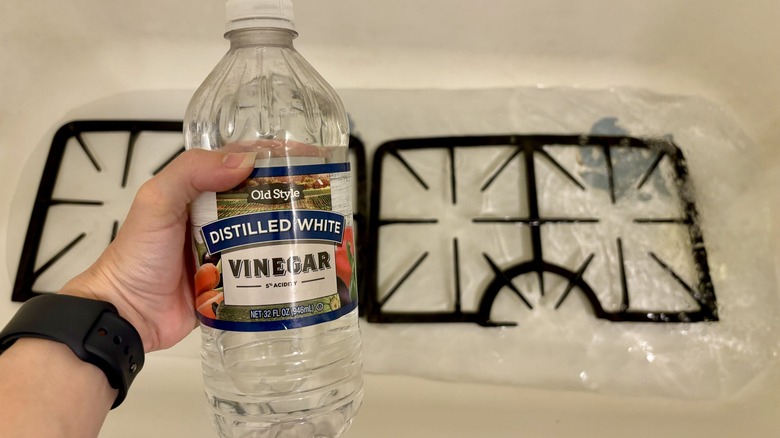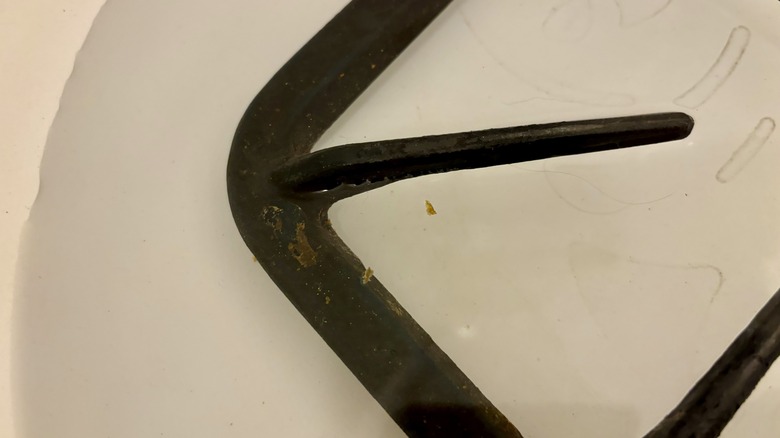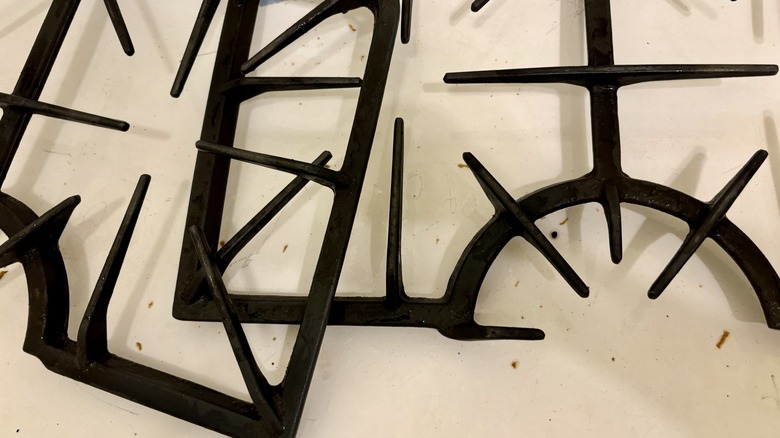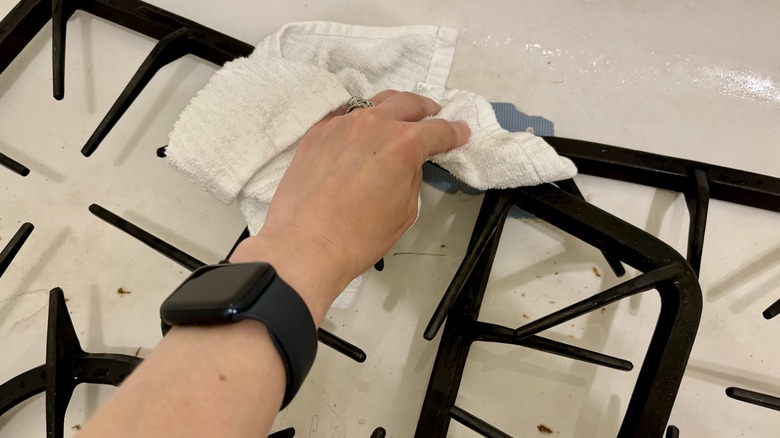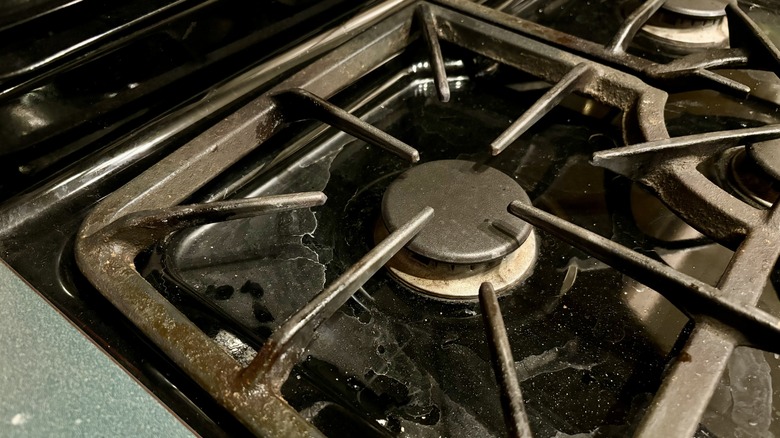How To Clean And Care For Gas Stove Grates
If you have a gas stove, you have grates that inevitably get dirty and must be cleaned. As beautiful as a stove is when you first get it, if you plan to use it, you have to plan to clean it. But with all those nooks and crannies, it can be challenging to restore stove grates to their former glory. Cleaning them doesn't have to be strenuous as long as you know what to do.
One of the big things to understand is that not all stove grates are created equal. Some grates are made from cast iron. These will appear rough and black, whereas others may be ceramic coated. These will be smooth and can be different colors or shades. The important thing is that the general cleaning practice is the same for both. We will offer some slight variations based on what kind of grate you have. This way, you can keep your gas stove's grates clean no matter what has spilled, boiled over, and burned onto them.
Tools you will need
For this, you will need a tub big enough to hold your grates. You can also use a sink that has a stopper to hold in water. From there, you will need either some dish soap, baking soda, or vinegar. Notice we said "or," not "and." Do not mix baking soda and vinegar. Vinegar is a heavy acid, and baking soda is a base. If you mix the two, they will cancel each other out and do nothing. If you want to boost the acidic properties of the vinegar, you can use tartar cream, which is also acidic. Additionally, ingredients in soaps vary, and many should not be mixed to avoid chemical reactions. Refer to your specific soap before mixing with either baking soda or vinegar.
In addition, you will need a rough sponge or brush to scrub down your grates. You may also need an abrasive cleaner, such as Bar Keepers Friend.
What not to do
You may see people on the internet who tell you to use harsh cleaners such as oven cleaner or bleach, but please avoid this practice. As its name indicates, oven cleaner, in general, is only for the specific use of cleaning your oven. There are harmful fumes this cleaner can give off, it can damage your grates, and it is not meant to be handled that freely. Additionally, bleach will cause metal, such as your grates, to rust. Bleach is great for many other tasks, but not this one. Bleach should also never ever be mixed with vinegar as it can release toxic and potentially lethal gas.
We also do not recommend putting your grates in the dishwasher. This is especially true for cast iron grates, as the constant exposure to water and intense cleaning can break away at the protective seasoning of cast iron. Some enameled grates may be dishwasher safe, but this will be specifically stated in your stove's manual.
Fill the tub with water
Start by filling a tub big enough for your grates with warm water. Add soap, baking soda, or vinegar. Give your tub a little mix. If you have trouble finding a big enough tub, we recommend using a bath one. Fill it with just enough water to cover the grates — no more than that.
Completely submerge the grates
Completely submerge your grates and allow them to soak for 10 to 15 minutes. For really tough stains and cooked-on food, you can allow your grates to soak for a longer time. You may notice pieces of food and oil coming off during this time.
Scrub them down
Take your sponge or bristle brush and give your grates a scrub down. Any tough food will take some additional elbow grease but should come off. If you are having difficulty, allow your grates to soak for an additional five minutes.
If you are having trouble with a particular spot, use a mildly abrasive product such as Bar Keepers Friend or baking soda. Make a paste and use that to scrub away whatever still remains. Just remember that, especially with cast iron, your goal is not to strip away the whole coating; it is simply to remove the uncarbonized oil and dropped food.
Pat the grates dry
Use a cloth to fully pat dry your grates before replacing them on the stove. You do not want them dripping additional water onto your stove top or pooling water where the feet of the grates meet the stove, as this can cause rust.
If you have cast iron grates, take this opportunity to inspect them for any rusting spots. If you find rusting, you will need to remove the rust and reseason your cast iron.
How often to clean and maintain grates
How often you clean your grates is up to you and probably depends on how much you cook. We recommend wiping up any major spills after they happen to keep your stovetop and grates as clean as possible.
If you cook a lot, brands such as Whirlpool recommend giving your grates a good cleaning once a week. However, if you do not cook as much, you can likely get away with once a month. The longer you go in between cleanings, the harder it can become to clean your grates, especially as gunk and grime sit and get baked on with every additional use.
